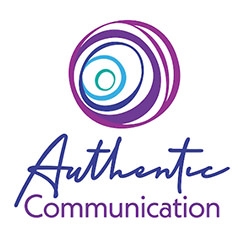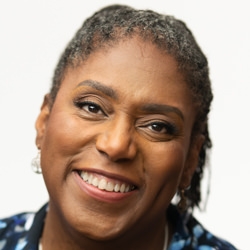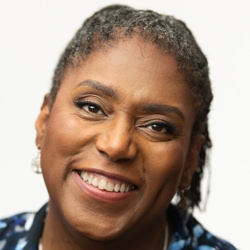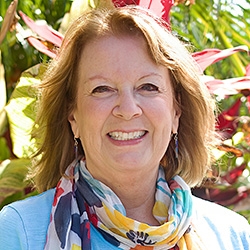
Search Results: intention
-
- Learn how to transform NVC into a tool for systemic awareness and healing
- Examine the influence of difference, and uncover pathways that strengthen its capacity
- Learn to receive and offer feedback on impact in situations fraught with power differences
- Explore specific ways in which NVC systemically supports the full flowering of humanity
- Delve into the dynamics of cultural differences, and discover how NVC can systemically contribute to a liberation perspective
-
When a person of color (A.K.A. a person from the Global Majority, or GM) tells a marginalization story that triggers a defensive response from a white participant in a group, to foster awareness and healing, leaders can address the white person's distress with empathy, highlighting the common dynamic of prioritizing white pain. From there, leaders can offer GM participants opportunity to share their experience and make requests of the group.
-
As human beings, our inherent goodness makes most of us believe in equality and yet sometimes our conviction in this same 'goodness' may make us blind to the reality of our own behavior. We are so convinced about the innocence of our intention that we seize to look at the impact of our behavior and thus our unconscious biases often go unexamined and unchallenged. Diversity, equity and inclusion work will only be of lip-service until we are willing to look at our own unconscious biases. Listen as Anisha Pandya encourages you to look at the possibility of how our self-awareness is so limited and one of the ways of expanding that awareness is by moving beyond our intention, looking at the impact of our behavior and remaining open to feedback.
-
Children interpret and create meaning from everything they observe. They form a narrative about themselves and their place in the world. Roxy Manning shares how the stories of parents contribute to this narrative. Roxy shares a personal story where she, in an attempt to highlight her son's intellectual gifts, unintentionally influenced him to believe he couldn't do things on his own and wasn't smart. The impact of stories like this on a child's self-perception is long-lasting. Roxy urges us to consider the unintended messages that our words and actions may convey, as these narratives can be challenging to shift once established.
-
-
John and Stephanie combine mediating conflict, parenting and study of brain science to this ground-breaking course recording on how to funnel your anger and your child’s anger toward mutual caring and peace.
-
If we’re selfish, all we care about is our own needs. If we’re selfless, our needs don’t enter the picture; others needs are the focus. But what if serving others meets our needs? What if being only selfish ultimately results in our needs being unmet? Do you find yourself bouncing between being a selfless doormat and then resenting it, and beating yourself up for being “selfish”? Instead, care about others’ needs AND your needs.
-
Whether its pandemics, climate change, damage to the environment or other massive challenges that humanity faces, what are we to do if we can't agree on even the most basic information and knowledge? From empathic understanding we can focus on shared, universal human needs (where there is no conflict or disagreement) underlying our perceptions, and feelings. Then we can see if there are ways we can agree on to meet those needs.
-
How do we live each and every day from the “living energy of needs” – with the unimpeded fullness of life’s energies flowing through us, regardless of the conflicts or life circumstances we may be experiencing? Through developing deep self-compassion. How can we experience our inner world from a place of utter and total compassion? When we practice compassionate self-care, we create an inner spaciousness that allows our life’s energies to flow. In that spaciousness both healing and inner transformation occurs. Robert’s work explores the interweaving of two co-intentions—to live life from the fullness of the “beauty of needs” and to approach every experience with deep compassion.
-
There are many polarizing issues we can resist and fight over. The word "resistance" can mean fighting against what we don’t agree with in counterproductive ways. It can also be the illusion and futility of mentally fighting against reality of 'what is'. But acceptance, non-resistance, of what is doesn’t mean powerless resignation. Another way to resist is to accept and love whole-heartedly, with empathy and care for the people doing the things we are resisting.
-
Discover how the perennial strength of compassion and the living energy of needs can help you develop resilience in order to remain present with yourself and others amidst today's challenges.
-
Roxy Manning emphasizes positive relationships in parenting, highlighting acceptance, understanding, and compromise. She stresses the importance of being aware of one's needs, attuning to the other person's needs, fostering trust, and encouraging open communication, especially with children. The approach involves a balance between meeting both sets of needs for a healthier dynamic.
-
When we're faced with certain situations we tend to go into a fight, flight or freeze mode. While these can sometimes be helpful and even lifesaving, they can also be crippling when the situation may not be life-threatening. In this episode, we give you some tips on how to shift into a more intentional way of handling difficult situations.
-
Workplace relationships are complex. Each employee brings their unique self to work. Their background, perspective, emotional triggers, and working style. Add to this the dynamics of power relations, and the fact that often workplace communication now takes place at our computer keyboards rather than face-to-face. Sylvia Haskvitz offers practical tips to make today's complex workplace relationships more satisfying and effective.
-
Sylvia offers practical tips to make today's complex workplace relationships more satisfying and effective.
-
The Compass – Arnina Kashtan's in-depth transformational process – is specifically designed to support you in reliably deepening your understanding of your own and others' conditioning, and finding ways to reclaim your full connection with yourself.
-
The Compass – Arnina Kashtan's in-depth transformational process – is specifically designed to support you in reliably deepening your understanding of your own and others' conditioning, and finding ways to reclaim your full connection with yourself.
-
Trainer tip: Why do NVC practitioners sometimes use the jackal as a metaphor in the NVC world? What can it teach us? Read on for more.
-
- Start here to discover how Nonviolent Communication (NVC) will enrich and deepen all your relationships.
- You'll love this practical and enlightening approach to empathic listening and effective self-expression.
- Learn on your schedule with self-paced learning modules in this 30-day program.
-
Inspired by Marshall Rosenberg's teachings, Kathleen Macferran's self-empathy exercise offers a transformative approach for those challenging moments when you fall short of your own expectations.



















